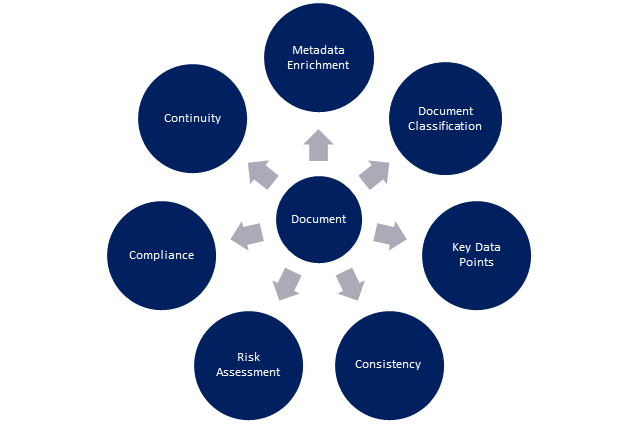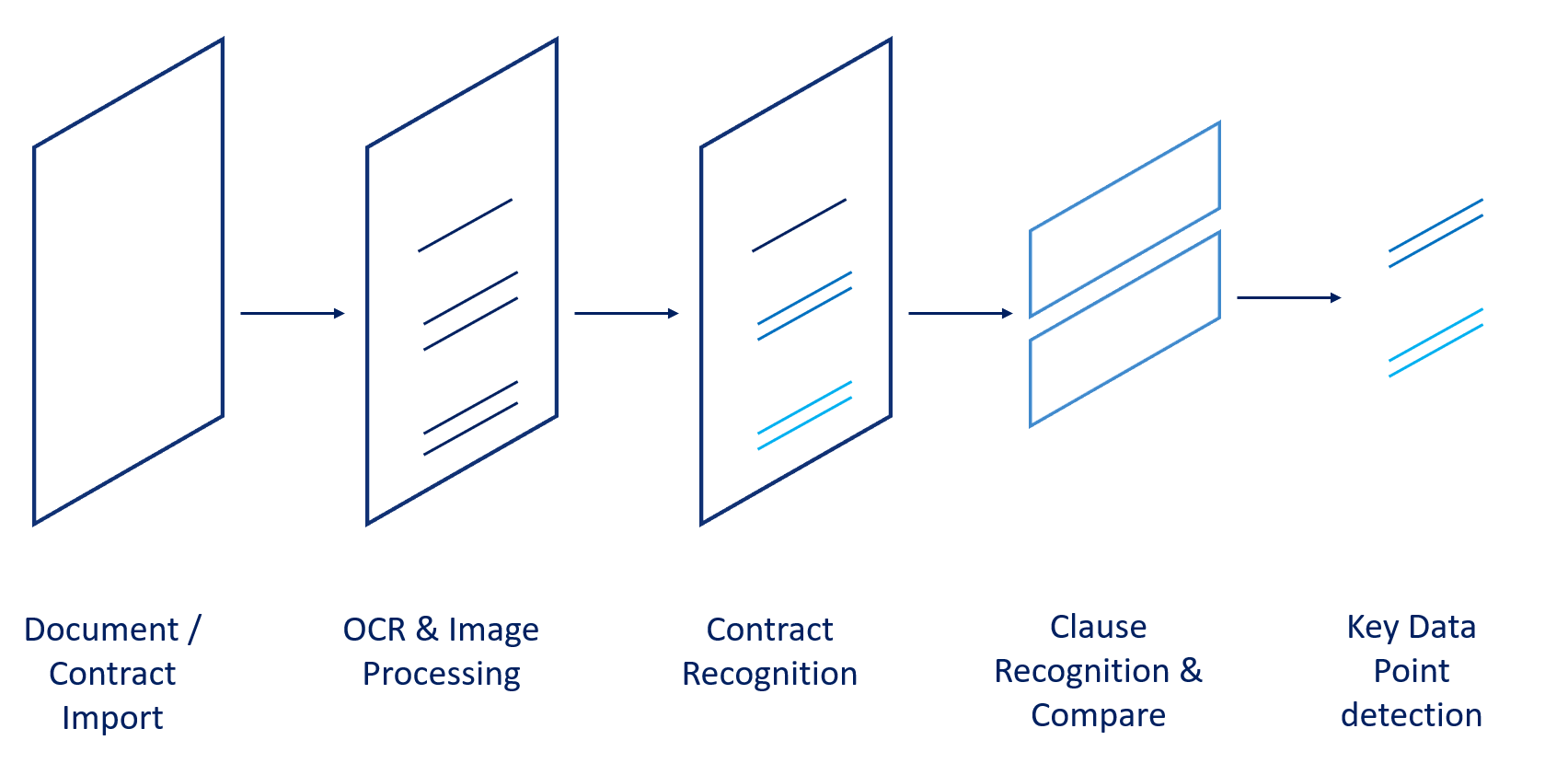Zug, July 21, 2020: Framesoft revealed its new Artificial Intelligence (AI) & machine learning (ML) module Framesoft Document Intelligence (FAI).
Framesoft Document Intelligence (FAI) is bringing natural / legal language processing & modern artificial intelligence methods to documents. Applying modern computational and artificial intelligence methods to documents / agreements and templates can provide unprecedented insights into individual documents and contracts as well as into a document library.

Framesoft Document Intelligence (FAI) Tools
1. Document Processing
Framesoft Document Intelligence based Document processing starts with the import of the documents, which is then converted into text using modules like file-format converters & OCR. The text is processed by an NLP-chain, analyzing & annotating the linguistic structure & semantic content. To improve this process, user feedback can be gathered for these intermediate results and used for training or tuning of the NLP-chain’s components.
2. Natural Language Processing
Natural Language Processing (NLP) chains analyze the documents in several steps, including tokenization, sentence splitting, grammatical structure analysis and named entity recognition. These steps provide the grammatical structure & semantic analysis of the text. The results are then converted into a standardized format for further processing.
3. Inference
Inference modules are used to derive applicable insights from the Natural Language Processing results. This includes the application of modules like cluster analysis, rule-engines or neural network-based qualifiers, leading to insights about the document. Feedback on these results can be used to improve the inference modules by further training or improving their configuration.
4. Status and Insight Database
To allow reporting & further processing, for each document or document-part details are stored about what modules, versions & training-states they have been exposed to. Furthermore, the derived insights are also stored so they can later be queried and used for comparative inference mechanisms.
5. Confidence Evaluation and Reporting
Where a module provides a measure of confidence, this is stored with the results, available in queries and APIs, and reported to the end-user.
6. Machine Learning (ML)
Ongoing training is a part of the operational workflow.
Framesoft Document Intelligence (FAI) Use Cases

Uses cases for Framesoft Document Intelligence (FAI) are:
-
Clause determination & separation
Scan a (re-)migrated document (e.g. agreement) and separate the contract into meaningful clauses.
-
Clause Compare
Compare the identified clauses of a migrated document against your clauses in your clause library.
- Clause Compliance, Classifications & Categorizations
Check migrated documents regarding compliance to specific policies based on semantic rules. Classify documents into (risk) / sub-types using clustering algorithms & find comparable clauses in similar type of documents.
- Document (Contract) data point recognition
Key data-points and substantial data items such as relevant dates, involved parties, numbers and ratios for specific entities & specific relations like liabilities, governing law etc. can be extracted from the text & reconciled with the application FAI is integrated with, e.g. FCR.
Framesoft Document Intelligence (FAI) can be integrated with any Framesoft solution such as e.g. Framesoft Contract Repository (FCR) and offers the opportunity of automating or augmenting decision-making tasks in real time, more accurately using more facts contained in documents.
Get in contact with us or receive more information regarding Framesoft Document Intelligence (FAI).
